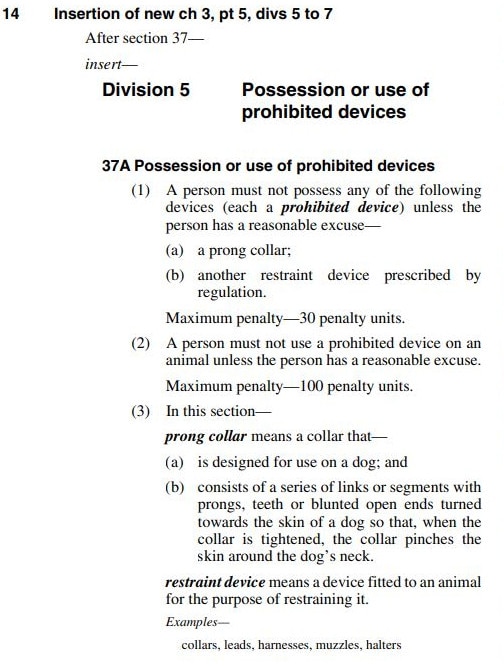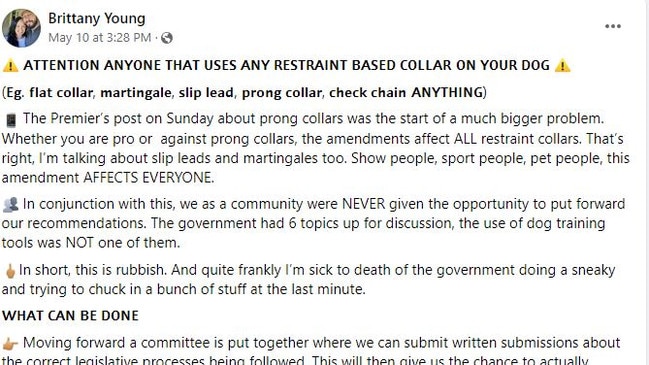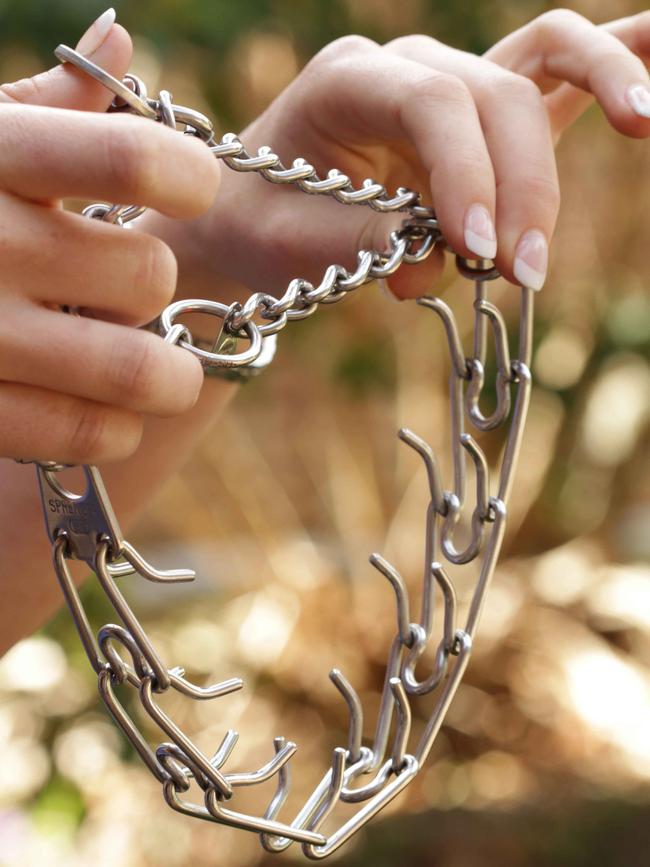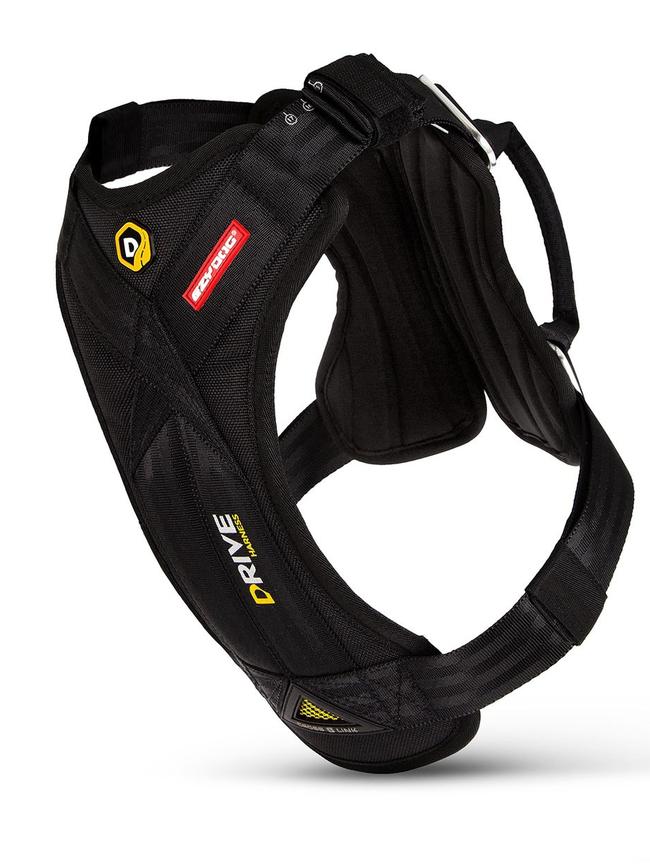Dog owners confused over potential prong collar, ‘other restraints’ ban
Dog owners have been left confused over a State Government proposal to ban “prong collars” and “other restraints”. Here’s what would happen if the new laws are passed.
Pets and Wildlife
Don't miss out on the headlines from Pets and Wildlife. Followed categories will be added to My News.
Dog owners have been left frustrated and confused over newly proposed law changes that would dictate what collars or restraints would be legally acceptable for their beloved pups.
The State Government last week introduced a range of amendments to Queensland’s animal welfare laws, including prohibiting the use of “prong collars” - a collar with a series of links or segments with prongs, teeth or blunted open ends turned towards the skin of a dogs neck.
But some keen-eyed owners have questioned why a second line was added afterwards stating that “another restraint device prescribed by regulation” could also be banned following the consultation process.
The government’s broad definition of a restraint device included collars, leads, harnesses, muzzles and halters, but the amended Bill did not specify which types would be declared as banned once it passed through parliament.

However, the Bill’s explanatory notes, did clarify that other devices would be banned or restricted if they were “considered to be inappropriate as a training aid because they cause pain and fear in dogs which is used as a punishment.”
Agriculture Minister Mark Furner said the proposed legislation would simply allow the government to use regulations to ban future collars if they were deemed dangerous or harmful to animals.

“Under this change, if a harmful new kind of collar is developed we could pass a regulation to ensure it was also banned,” he said.
Mr Furner said specifically banning prong collars was necessary to prevent physical harm to a dog including bruising, scratching and skin punctures, which sometimes lead to severe spinal cord injuries.
“Research has shown that using aversive training methods including the use of prong collars can cause pain and distress and can compromise the dog’s welfare,” he said.
RSPCA Queensland’s head of behaviour Kristy Nalvarte said owners should remember that being restrained by a lead “isn’t natural for dogs.”
“The science behind the design of the (prong) collar is that it causes pain to the dog when the dog pulls, which, if painful enough, can lessen the
pulling,” she said.
“Studies have long shown that there are more humane ways to train animals than to use fear, pain or intimidation to get results. Training with aversives, using something the dog doesn’t like, often leads to other behavioural issues such as fear, anxiety and aggression, and can damage the bond between an owner and pet.
“We recommend that pet owners teach puppies from a young age that it’s beneficial to stay close to their owner when out walking.”
Queensland Animal Welfare League state rehoming manager Melinda Phipps recommended owners speak to a professional such as a trainer, pet shop owner or veterinarian before deciding what training devices or collars to use.
She said the QLD Animal Welfare League did not condone the use of prong, choker and shock collars.
“A prong collar is an old style of collar and there are now new and more humane ways to train your dog … for your standard owner, a flat collar is the way to go,” Ms Phipps said.
“Harnesses are also quite popular, they are designed not to cause discomfort to your pet and help with communication processes when training.


“Anything that shocks collar, that’s again a negative one. We wouldn’t recommend those. It's very negative and usually they don't fix the problem that you have.
“Same with a choker, that’s not a collar or training tool we would recommend because of that negative association and the risk of these training types as dogs can become trapped or hooked onto something causing trauma or injury.
“We always recommend seeing if problems are anxiety driven, if there’s different mechanisms and having a chat to a professional so they can look at the age, breed, size and type of problem you’re faced with and what the best harness of tool would be to deal with it, so you can have more (training) success.”
Queenslanders have until 12pm, Wednesday, June 1 to submit feedback on the proposed changes to the Animal Care and Protection Act 2001 before a final report is prepared for parliament.




